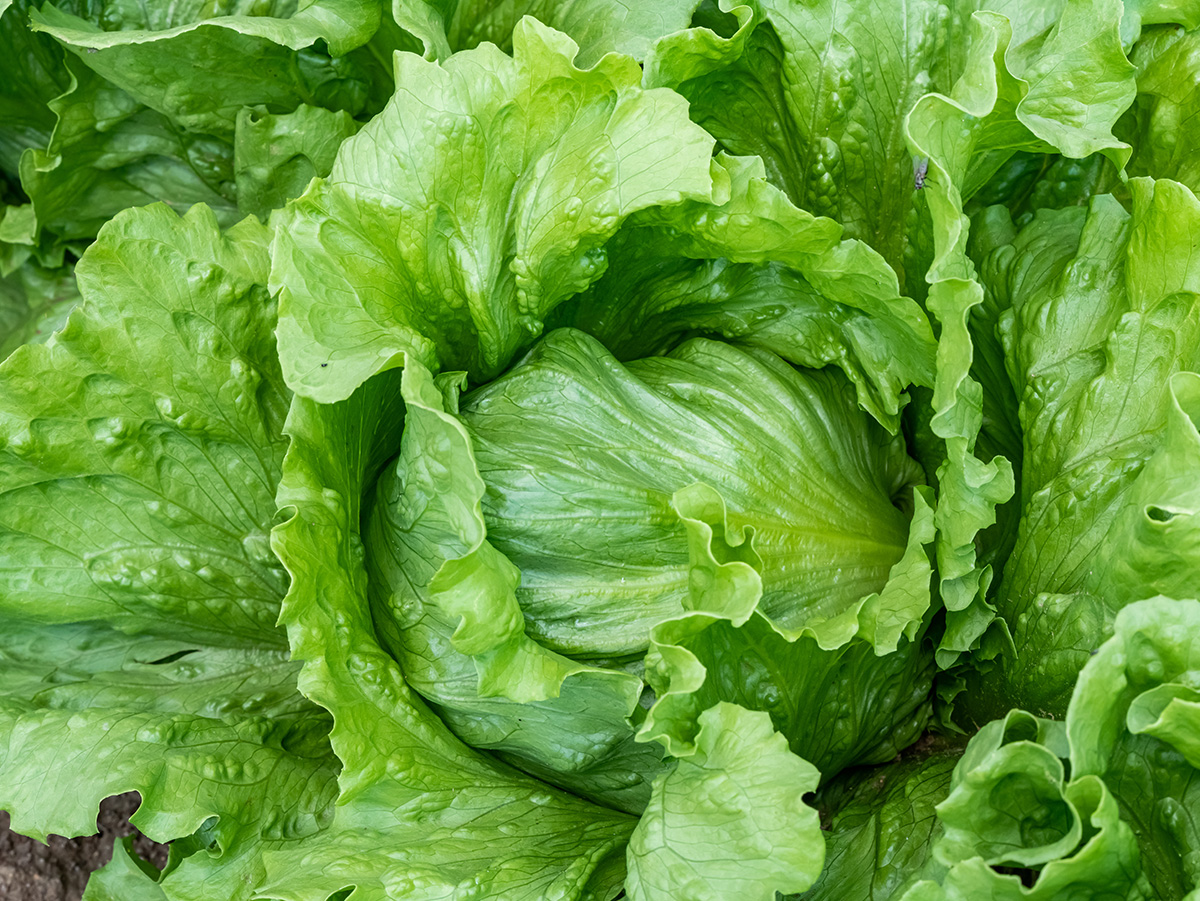Health Benefits of Lettuce
What are the health benefits of lettuce?
Lettuce is a low-calorie leafy green vegetable that is often used as a base in salads and sandwiches. It offers several health benefits, including:
- Nutrient-Rich: Lettuce is a good source of vitamins and minerals, including vitamin K, vitamin A (in the form of beta-carotene), folate, and manganese. It also contains small amounts of other nutrients like vitamin C, iron, and potassium.
- Hydration: Lettuce has a high water content, which can help fight dehydration, especially when consumed as part of a meal or snack.
- Antioxidants: Certain types of lettuce, such as romaine lettuce, contain antioxidants like beta-carotene and vitamin C, which can help protect your cells from damage caused by free radicals.
- Weight Management: Due to its low calorie and high water content, lettuce can be a good choice for those looking to manage their weight. It can help you feel full without adding many calories to your diet.
- Digestive Health: Lettuce contains fiber, which is important for digestive health. Fiber helps regulate bowel movements and can help prevent constipation.
- Heart Health: The fiber, vitamins, and minerals in lettuce, particularly vitamin K and potassium, may contribute to heart health by helping to lower blood pressure and reduce the risk of heart disease.
- Eye Health: The beta-carotene in lettuce is important for eye health and may help reduce the risk of age-related macular degeneration (AMD) and cataracts.
- Skin Health: Some nutrients in lettuce, such as vitamin C and beta-carotene, are important for skin health and may help protect your skin from damage caused by the sun and pollution.
It’s important to note that while lettuce can be a healthy addition to your diet, it’s best to consume a variety of fruits and vegetables to ensure you’re getting a wide range of nutrients. Additionally, be mindful of the toppings and dressings you add to your lettuce, as they can significantly impact its overall nutritional value.
What are the health risks of lettuce?
While lettuce is generally considered safe for consumption, there are a few potential health risks to be aware of:
- Foodborne Illness: Like other raw fruits and vegetables, lettuce can be contaminated with harmful bacteria such as E. coli, Salmonella, or Listeria. These contaminants can cause foodborne illnesses, especially if the lettuce is not washed properly or if it comes into contact with contaminated water or surfaces.
- Allergic Reactions: Some people may be allergic to certain types of lettuce, particularly varieties like iceberg lettuce. Allergic reactions can range from mild symptoms such as itching and hives to more severe reactions like difficulty breathing and anaphylaxis in rare cases.
- Pesticide Residues: Conventionally grown lettuce may contain pesticide residues, which could pose a risk to health if consumed in large amounts over time. Washing and properly preparing lettuce can help reduce pesticide exposure.
- Oxalates: Lettuce, particularly varieties like spinach and Swiss chard, contains oxalates, which can contribute to the formation of kidney stones in susceptible individuals. People with a history of kidney stones may need to limit their intake of high-oxalate foods.
- Contaminated Irrigation Water: Lettuce grown in regions where irrigation water is contaminated with pathogens can pose a risk of foodborne illness. It’s important to wash lettuce thoroughly before eating to reduce the risk of contamination.
Overall, the benefits of including lettuce in a balanced diet typically outweigh the potential risks for most people. To minimize any risks, it’s best to wash lettuce thoroughly, store it properly, and consume it as part of a varied and balanced diet.




